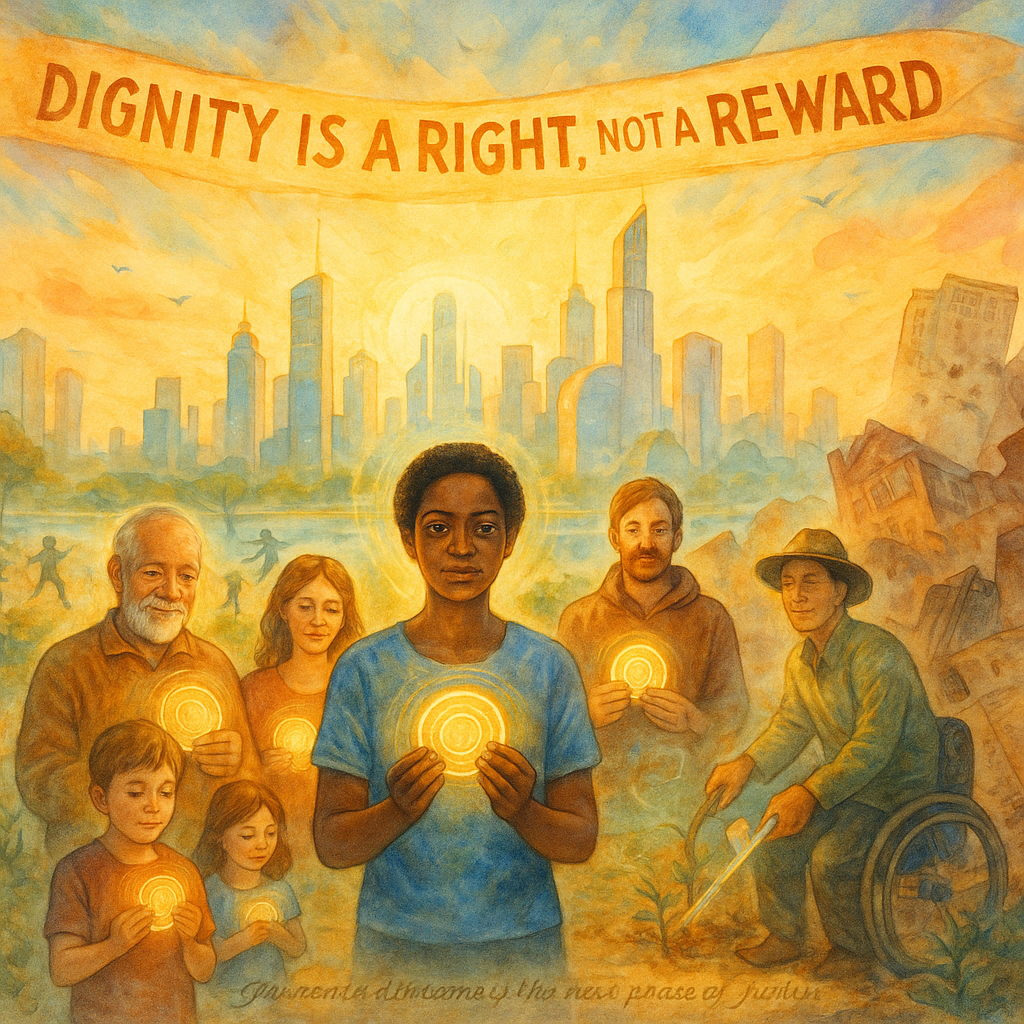The Case for Universal Basic Income: A Moral and Economic Imperative
In a world defined by abundance, it is a profound failure of imagination that millions still live with empty cupboards and unpaid bills. We are not short on resources, ingenuity, or technological capacity. What we lack is a system that aligns prosperity with equity—a mechanism to ensure that the gains of progress are shared rather than hoarded. Universal Basic Income (UBI) is not a radical fantasy. It is a rational, humane, and urgently necessary response to the converging crises of our time.
UBI proposes a simple yet revolutionary idea: every citizen receives a regular, unconditional cash payment, sufficient to meet basic needs. It is a policy rooted not in charity, but in justice—an acknowledgment that survival should not be contingent upon navigating an increasingly volatile job market. As automation, artificial intelligence, and global economic shifts decimate traditional employment sectors, we must ask: what happens when hard work is no longer enough to guarantee stability? Or worse, when there simply isn't enough work to go around?
The warning signs are all around us. From warehouse workers racing against algorithmic quotas to gig workers strung along by apps with no benefits or security, the modern economy has extracted ever more from its labor force while giving back less. Productivity has skyrocketed; wages have not. This is not a glitch. It is a design flaw—and UBI is the redesign we need.
Historically, the idea of a basic income is neither new nor ideologically fringe. Founding father Thomas Paine envisioned a citizen's dividend. Martin Luther King Jr. championed a guaranteed income as a path to dignity. Even conservative economist Milton Friedman advocated for a version through a negative income tax. Across political lines, the logic holds: people should not have to earn the right to exist.
Critics raise familiar objections. Won't people stop working? Won't it be too expensive? Won't it trigger inflation? But evidence from real-world trials—in Finland, Kenya, and Stockton, California—tells a different story. Participants in these pilots didn't quit their jobs en masse. They used the money to reduce stress, pursue education, start small businesses, and take care of their families. In other words, they acted not out of laziness, but with agency. They made choices that improved their lives and, by extension, their communities.
As for cost, it's a question of priorities. Governments routinely subsidize fossil fuels, bail out banks, and offer tax cuts to corporations with no strings attached. Redirecting a fraction of those expenditures toward a UBI would be not only feasible but fiscally responsible—stimulating demand, reducing the need for complex and bureaucratic welfare programs, and ultimately fostering a healthier, more resilient economy.
And inflation? Economists have found that moderate UBI programs have negligible inflationary effects, especially when financed through progressive taxation or wealth redistribution. Inflation occurs when demand outpaces supply—but UBI does not magically double consumer demand overnight. What it does is create stability, allowing people to plan, invest, and participate in the economy with confidence.
Underlying much of the opposition to UBI is an unspoken belief that people must be coerced into productivity—that without the threat of poverty, laziness will prevail. This worldview is not only cynical; it is empirically flawed. People want to contribute. They want to work, to create, to belong. What they need is the freedom to do so on their own terms, without the constant specter of financial ruin.
Universal Basic Income is not a silver bullet. It will not fix every social ill. But it is a foundation upon which we can build a more just society—one that values people not for their output, but for their humanity. It is a policy whose time has come not because it is trendy, but because it is true to our highest ideals: that no one should go hungry in a land of plenty, that no child should grow up fearing eviction, that freedom means more than the right to work until you break.
We stand at a crossroads. Down one path lies greater inequality, instability, and disillusionment. Down the other lies a bold reimagining of what it means to build a society that works for all. UBI is not the destination, but it is the first step.
Let us take it, not in fear, but in faith—faith in each other, in our shared future, and in the belief that dignity should not have a price tag.





